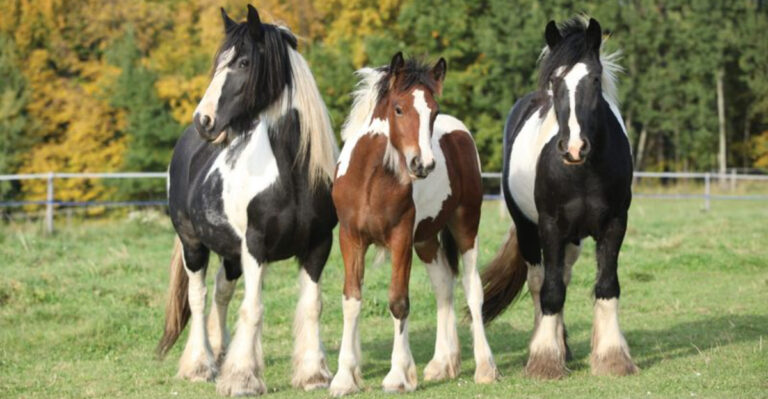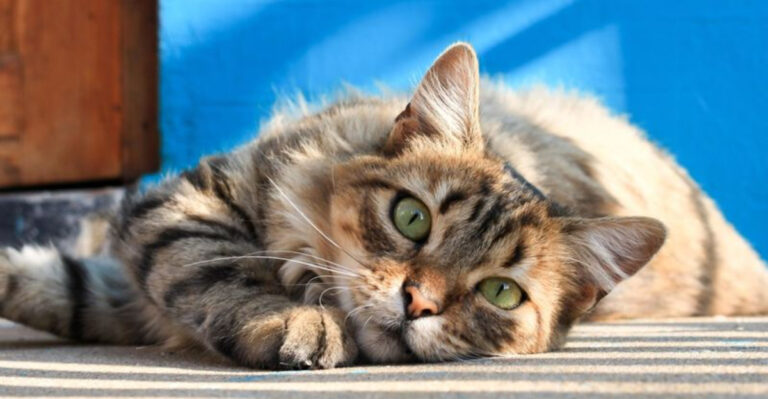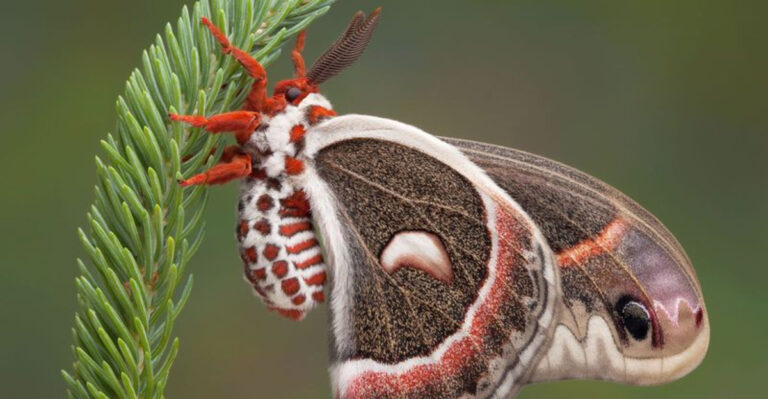Want To Keep Squirrels From Eating Your Garden? Here’s 9 Plants That Can Help Deter Them
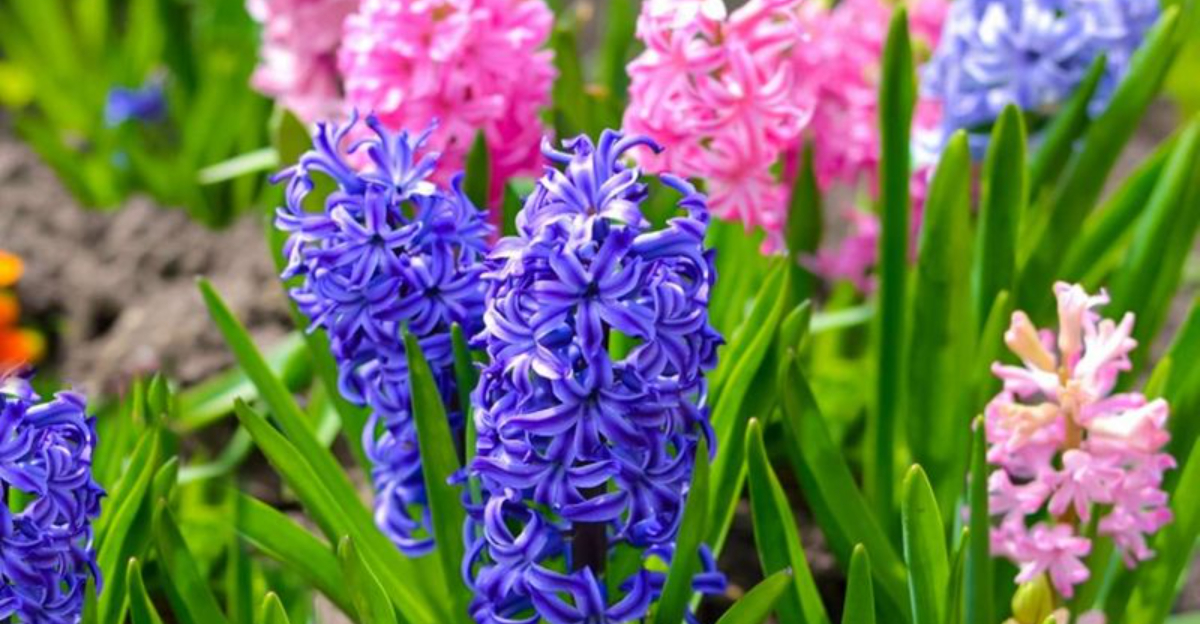
Squirrels may appear charming with their bushy tails and frolicsome antics, but when they start raiding your garden, they become less welcome guests.
These agile creatures can wreak havoc on flower beds and vegetable patches, leaving frustrated gardeners searching for solutions.
Fortunately, nature provides an elegant answer: certain plants have properties that naturally deter squirrels.
Whether it’s their scent, taste, or texture, these plants can help keep your garden safe and flourishing. So, here are plants that can help deter squirrels!
1. Daffodils
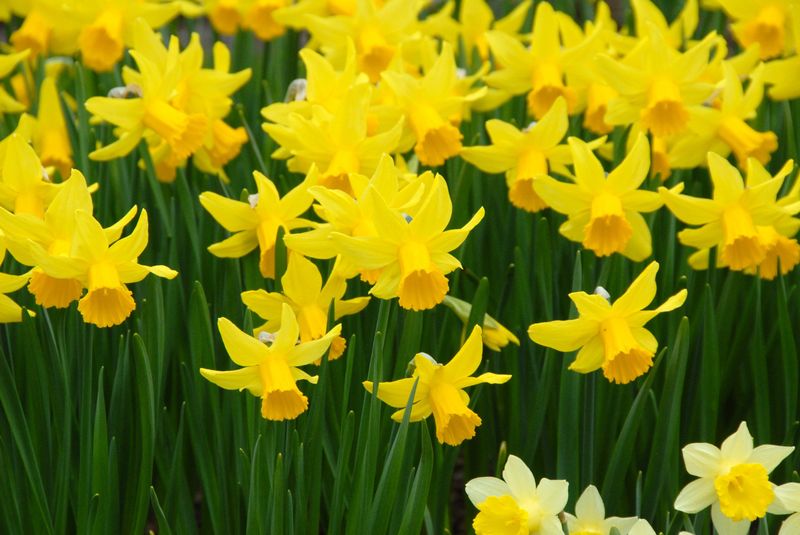
Daffodils, with their cheerful yellow blooms, offer more than just a splash of color to your garden. These flowers contain a compound called lycorine, which is toxic to squirrels.
When squirrels encounter daffodils, they usually avoid them, steering clear of areas where these plants grow. Planted around the perimeter of your garden, daffodils act as a natural barrier against these furry intruders.
The beauty of daffodils is that they bloom in early spring, providing an initial line of defense just as squirrels become more active after winter. Their low-maintenance nature makes them an excellent choice for gardeners seeking a hassle-free solution.
Beyond their deterrent qualities, daffodils attract pollinators, supporting the ecosystem while protecting your plants. Pair them with other spring bloomers for a vibrant and squirrel-resistant garden.
Remember, while daffodils are effective, a diversified approach with multiple deterrent plants will yield the best results.
2. Alliums
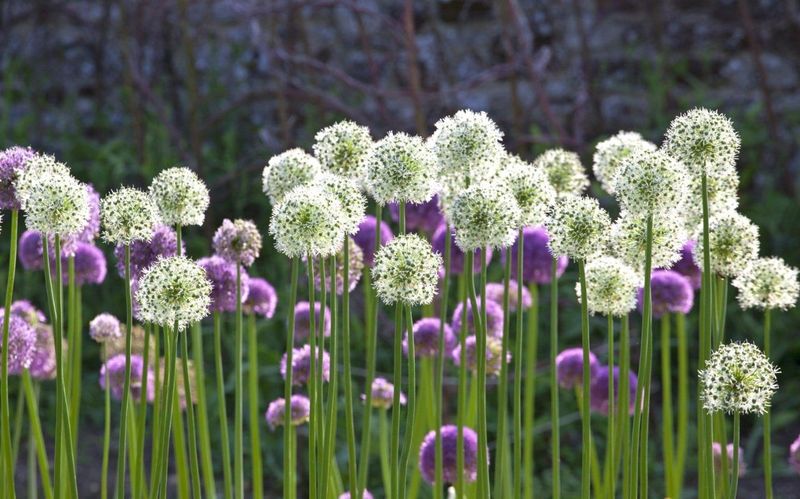
Alliums, known for their distinctive globe-like flowers, are not just a visual delight. These plants belong to the onion family and emit a smell that’s off-putting to squirrels.
This pungent aroma acts as a natural deterrent, keeping these critters at bay from your prized garden patches. The versatility of alliums allows them to fit into various garden styles.
Whether planted in rows or as part of a mixed border, their architectural blooms add height and interest. As a bonus, alliums can also deter other unwanted pests, making them a multi-purpose addition to your garden.
Their long blooming season ensures that your garden remains protected throughout the growing months.
For a striking display, mix different varieties of alliums, varying in size and color, to maintain a continuous squirrel-repellent presence. Their robust nature means they require minimal care, thriving in well-drained soil and full sun.
3. Fritillaries
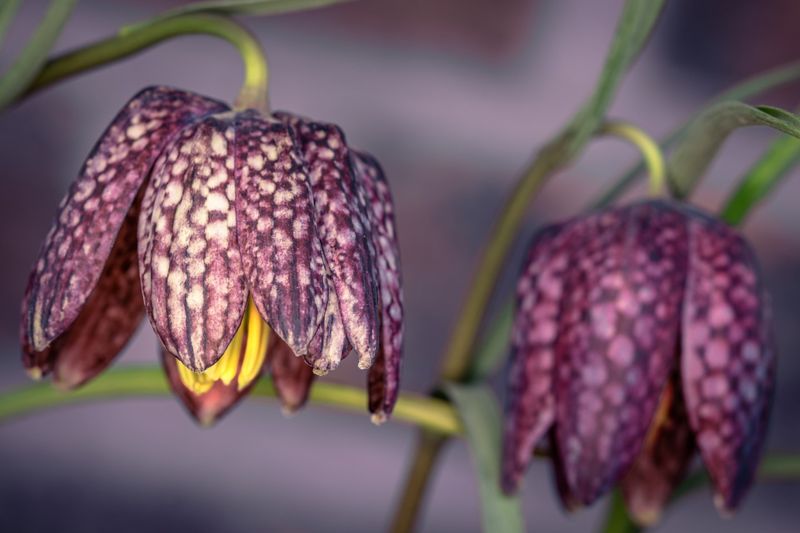
Fritillaries, with their unique checkered petals, bring an exotic touch to gardens. However, their visual appeal is matched by their squirrel-deterring properties.
The scent of fritillaries is unappealing to squirrels, who will typically avoid areas where these flowers are planted. These perennial bulbs are perfect for naturalizing in meadows or woodland gardens.
They thrive in settings that mimic their natural habitat, preferring well-drained soil with partial shade. Fritillaries bloom in mid-spring, offering an effective deterrent when squirrels are most active.
Plant fritillaries in clusters for a more impactful display and to maximize their deterrent qualities. Their unusual appearance not only enhances the garden’s aesthetic but also provides a strategic advantage in keeping pests away.
Combined with other deterrent plants, fritillaries are a valuable asset in any squirrel-proof gardening plan.
4. Lily Of The Valley
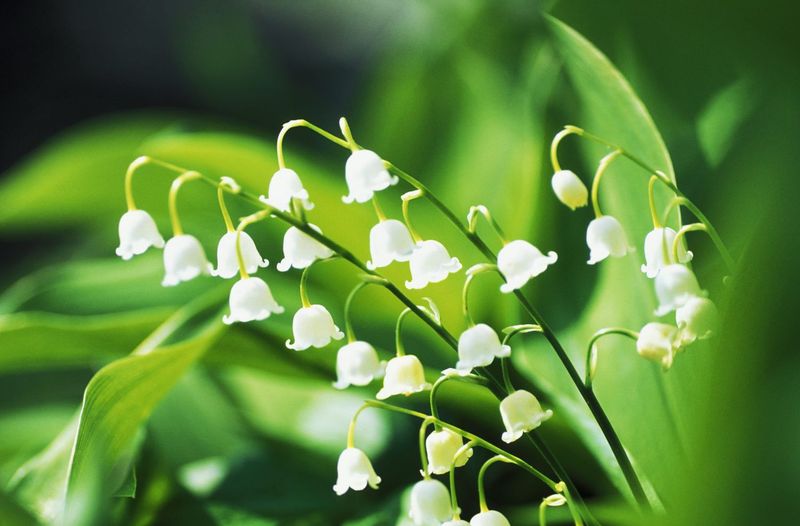
Lily of the Valley, with its delicate white bells and sweet fragrance, is a charming addition to any garden. Despite its innocent appearance, this plant is effective at deterring squirrels, thanks to its toxicity.
Both the flowers and leaves contain compounds that are poisonous to these creatures. Ideal for shaded areas, Lily of the Valley can be planted beneath trees or in garden corners where sunlight is sparse.
Despite their preference for shade, they require moist soil to thrive, making them perfect for woodland gardens or areas with consistent watering. Their ability to spread quickly makes them an excellent ground cover choice.
This spreading nature not only beautifies the garden but also creates a continuous deterrent layer against squirrels. Pair them with other shade-loving plants for a lush, protected garden oasis.
5. Hyacinths
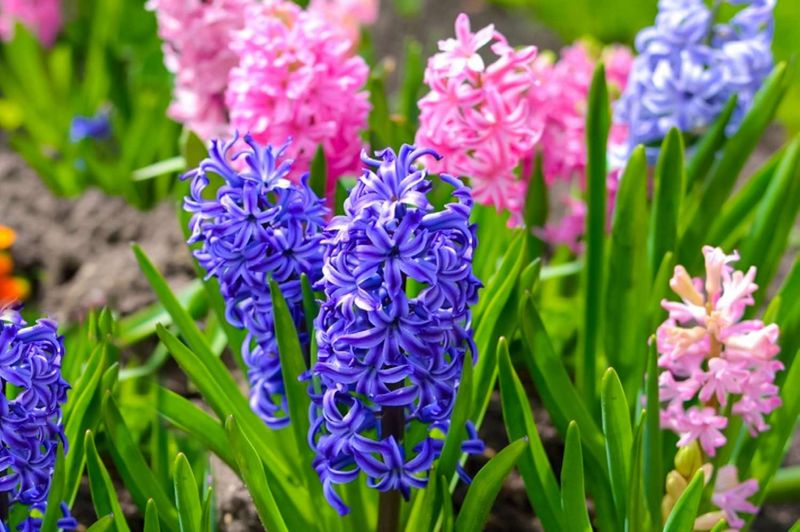
Hyacinths are known for their dense, fragrant flower clusters that can fill a garden with captivating scents. This fragrance, while pleasant to humans, is disliked by squirrels, thus acting as a natural repellent.
Placing hyacinths strategically can protect vulnerable areas of your garden. Available in a wide range of colors, hyacinths can complement other spring flowers, creating a vibrant and harmonious garden scene.
Their early blooming period means that they start deterring squirrels just as these animals become more active in search of food. These bulbs require well-drained soil and full sun to thrive, making them suitable for various garden settings.
Consider planting them in pots or raised beds to maximize their visual impact and protective qualities. With minimal care needed, hyacinths are a delightful and practical choice for keeping gardens squirrel-free.
6. Geraniums
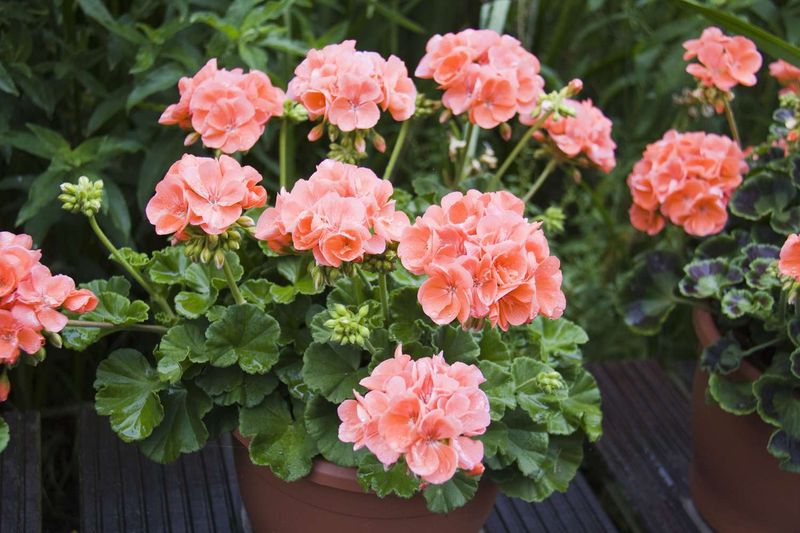
Geraniums, with their vibrant blooms, are a staple in many gardens, known for their ability to deter a wide range of pests, including squirrels.
The strong scent of geranium leaves is particularly unappealing to these creatures, providing an effective natural barrier. These hardy plants are easy to grow and maintain, thriving in both pots and garden beds.
They prefer full sun and well-drained soil but can tolerate partial shade, making them versatile for different garden spots. By incorporating geraniums into your planting scheme, you add both color and protection.
Their long blooming season ensures that your garden remains aesthetically pleasing while being safeguarded against unwanted visitors.
To enhance their deterrent effect, plant geraniums alongside other squirrel-repelling plants. Their robust nature and pest-repelling properties make them an essential component of any garden defense strategy.
7. Mint
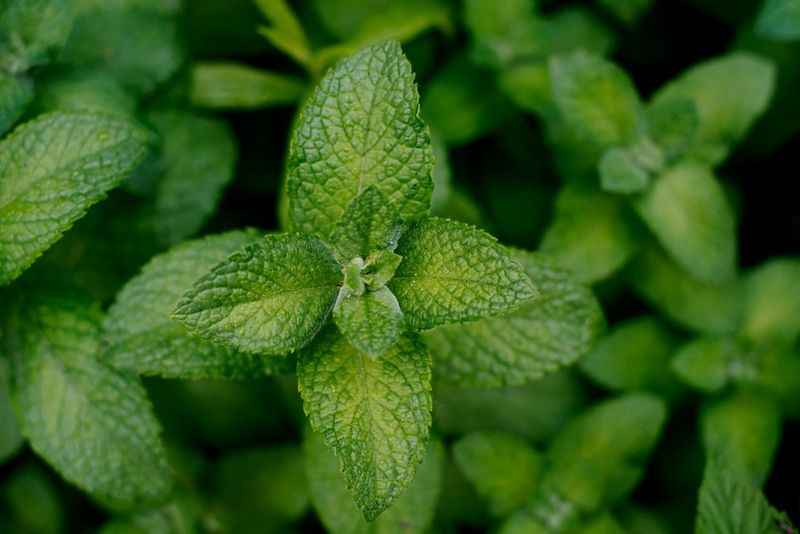
Mint, with its invigorating scent, is not just a favorite for culinary uses but also an effective squirrel deterrent. The strong aroma of mint is something squirrels tend to avoid, making it a strategic plant for protecting your garden.
Grow mint in pots to prevent it from spreading uncontrollably, as it can be quite invasive. This also allows you to move the pots around your garden as needed, focusing on vulnerable areas. The refreshing smell of mint can also positively enhance your outdoor experience.
Besides deterring squirrels, mint attracts beneficial insects such as bees and butterflies, contributing to a healthy garden ecosystem. Adding mint to your garden not only provides a functional benefit but also offers fresh leaves for your kitchen, making it a dual-purpose plant in your gardening arsenal.
8. Lavender
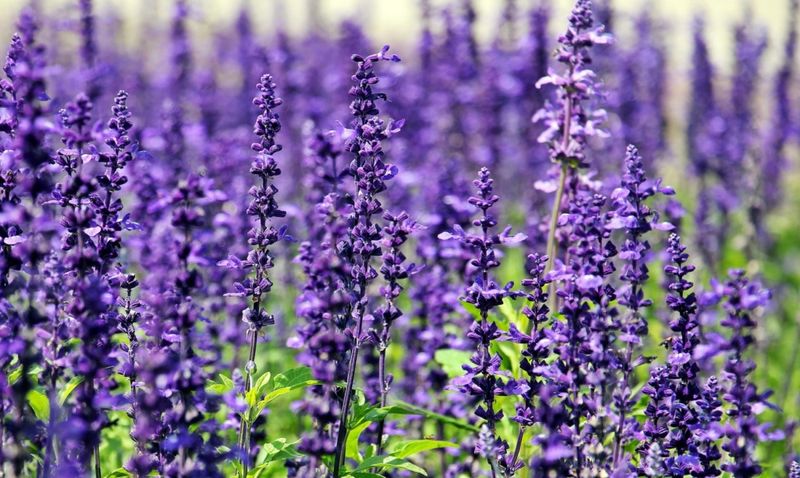
Lavender, with its calming purple flowers and soothing scent, is a beloved garden plant. Beyond its aesthetic and aromatic appeal, lavender serves as a natural deterrent for squirrels.
The strong fragrance is overwhelming for these animals, discouraging them from venturing near. This drought-tolerant plant thrives in sunny locations with well-drained soil, making it an excellent choice for borders or rock gardens.
Lavender’s ability to withstand dry spells means less maintenance while still providing effective protection. Planting lavender not only helps in deterring squirrels but also attracts pollinators like bees and butterflies, enhancing your garden’s biodiversity.
Its versatility and low maintenance make it a must-have for those looking to beautify and safeguard their gardens effortlessly.
9. Rosemary
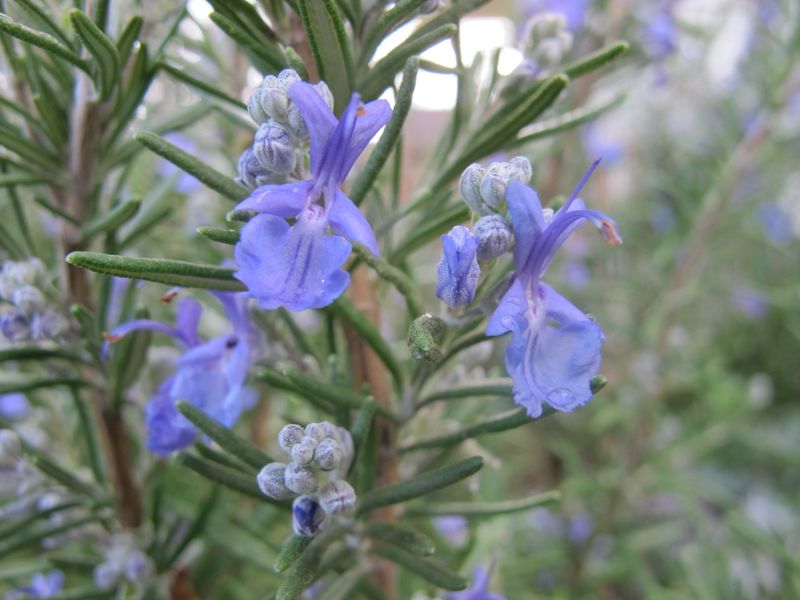
Rosemary, a staple in culinary gardens, is also known for its ability to ward off squirrels. The strong, pine-like scent of rosemary is unappealing to these critters, making it an effective plant for deterring them from your green spaces.
This hardy herb thrives in containers or garden beds, preferring full sun and well-drained soil. Its evergreen nature means it provides year-round protection against squirrel invasions.
Rosemary’s aromatic leaves can also be harvested for cooking, adding a flavorful touch to your dishes. Incorporating rosemary into your garden not only serves as a deterrent but also enhances the garden’s sensory appeal with its pleasant scent.
Pair it with other squirrel-repelling plants for a robust defense strategy. Its dual-purpose use as both a kitchen herb and a defense plant makes rosemary a valuable addition to any garden.


